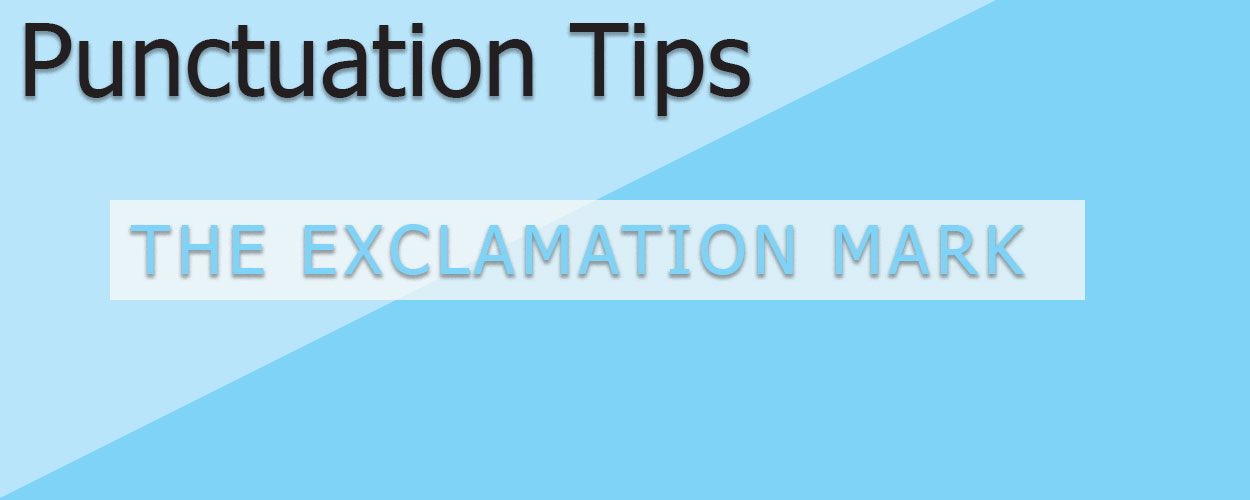

Posted: February 2, 2023
Definition: a punctuation mark (!) indicating an exclamation.
An exclamation point should be used only to indicate an interjection or a high degree of emotion. Be careful not to overuse it. Some authors even refuse to use a single exclamation point in their writing, believing them to be “a cheating method” of displaying emotion.
Use an exclamation point to indicate emotionally laden imperatives.
Use an exclamation to indicate surprise.
Do not use an exclamation point after mild exclamations.
Exclamation points are placed inside quotation marks, parentheses, or brackets if it is part of the enclosed material.
Exclamation points are placed outside quotation marks, parentheses, or brackets if it is not part of the enclosed material, but instead part of the main sentence.
Do not use a period, comma, colon, or semicolon immediately after an exclamation point.
Using an exclamation point together with a question mark is called an interrobang. It indicates a question spoken with added intensity or emotion. Often, rules state that a question mark overrules an exclamation mark. Personally, I refrain from using interrobangs.
Do not use more than one exclamation mark to end a sentence in any level of serious writing (such as story writing or formal writing).
The Period
The Colon
The Question Mark
The Apostrophe
Double Quotation Marks
Parentheses
The Slash
Obscure Punctuation
The Comma
The Semicolon
The Exclamation Mark
The Ellipsis
Single Quotation Marks
Brackets
The Hyphen
Dashes
Aaron, J.E. & Morrison, A. The Little, Brown Compact Handbook, 5th Canadian ed. Pearson, 2013, chap 5
Judd, K. Copyediting, A Practical Guide, 3rd ed. California, CA: Crisp Learning, 2001, chap 4
Tigerpetal Press is a small book press dedicated to publishing local authors and poets.